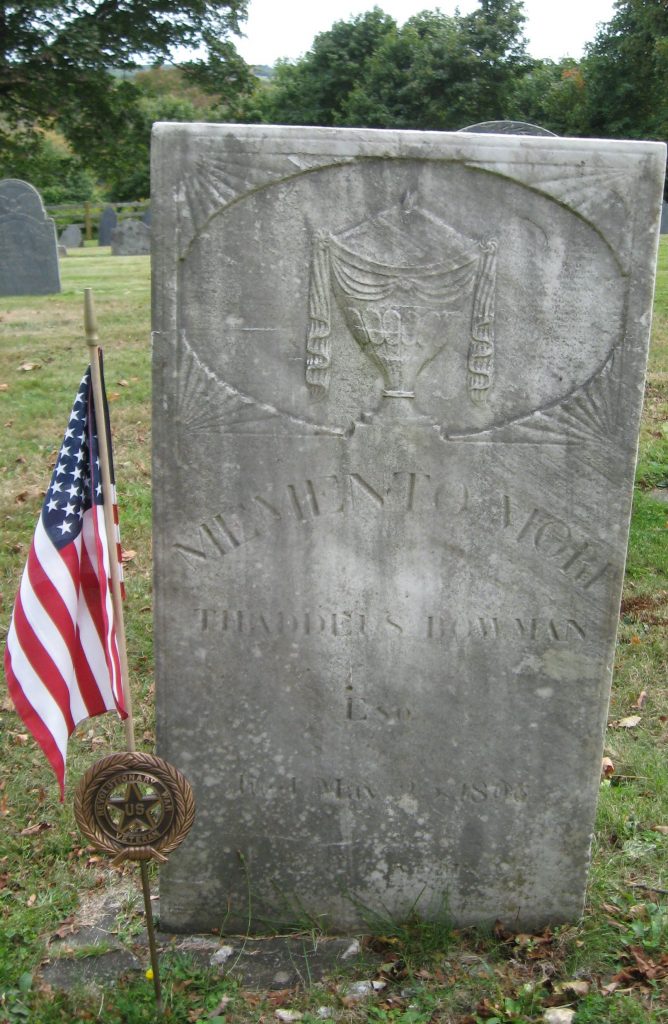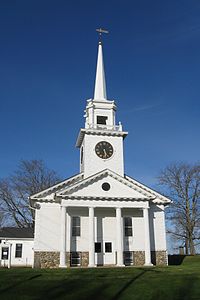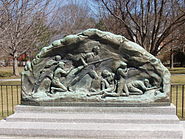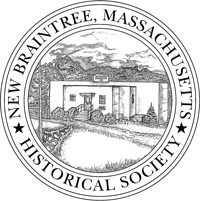
LET’S HEAR IT FOR EQUINE MILITIARY INTELLIGENCE!
Thaddeus Bowman had a smart horse.
Captain Thaddeus Bowman was the mounted scout who, at approximately 4:15 a.m. on the morning of April 19, 1775, brought the report to Captain John Parker and the Lexington Minute Men militia, that a column of the King’s troops (700 Redcoats) were already within the Lexington town limits and approaching rapidly.
Captain Bowman (at age 62) was the last and only scout to discover that the British actually were advancing on Lexington, as previously there had been several false reports. This was the first day of the American Revolution when the “shot heard ‘round the world” was fired.
That night Thaddeus had ridden at a rapid pace down the Cambridge Road (today’s Massachusetts Avenue), and had proceeded only about a mile and a half when his horse stopped suddenly and refused to go forward despite being urged on by his rider. Thaddeus wondered what had frightened the animal. Then, peering ahead, he discovered the reason when he spotted two individuals, one on each side of the road, close to the fences. He was still unsuccessfully endeavoring to urge his horse forward, not being aware of the plans of these soldiers to capture him, when he then caught a glimpse of the advancing main body of the British troops. As he described it “they were about twenty rods off” (about one hundred yards). He instantly turned his horse around and quickly rode back to the meeting-house where he informed Captain Parker of the approach of the Regulars (British Redcoats). It was Thaddeus’s horse who exhibited the most intelligence that day, and credit should be given to it for contributing to the timely warning being carried to the Lexington militia.
Thaddeus was a person of note in Lexington, serving the town in several capacities. He was a Selectman, Assessor, Town Clerk and a committee member for the funeral and burial for Lexington’s long time pastor John Hancock in 1752. He served in the military during the French and Indian War and as a Captain in the Lexington Minute Men Militia. He also took a leading part in voicing opposition to the actions of British Parliament.
Thaddeus married twice and his wives bore him thirteen children, seven of whom survived to adulthood, six sons and one daughter. All six of the sons served in the Revolutionary War. One son, Major Joseph Bowman, commanded a battalion at the Battle of Bennington and served in the Saratoga campaign. The Major had moved to New Braintree, Massachusetts around 1765, where his son, Joseph Jr., was born in 1771. Joseph, Jr. became one of New Braintree’s more successful citizens. He represented the town in the General Court for fourteen years, was a Senator, member of the Governor’s Council and for twenty-one years served as President of the Hampshire Manufacturer’s Bank.
Like many Revolutionary War veterans, this hero of the battle fell on hard times in his old age. Joseph Jr. was called upon by the town of Lexington to care for his grandfather and step-grandmother and so they came to live with him in New Braintree. Captain Bowman died here on May 26, 1806 at the age of ninety-six and is buried in the New Braintree Congregational Church graveyard. His wife Sybil’s burial site is unknown.


The Minute Man Oath
“We trust in God, that should the state of our affairs require it,
we shall be ready to sacrifice our estates and everything dear in life,
yea, and life itself in support of the common cause.”
